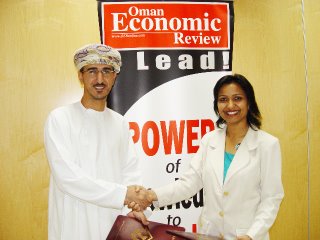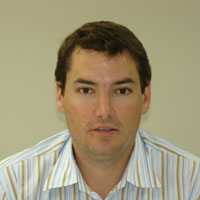Knowledge Oasis Muscat (www.kom.om) will hold eGames 2006, 10 - 11 December at the Crowne Plaza Hotel, Muscat, Oman. Now in its second year, eGames is the premier conference for the Gulf’s gaming community. With speakers from leading operators, developers, publishers and academics worldwide, eGames 2006 will focus on Mobile and Serious Games. Attendees will walk away having shown, discussed and seen state of the art innovation in the mobile and serious games industry.
Only at eGames will you gain access to:
Developer training and education specific to serious and mobile game development.
Advanced sessions on top-line design, production, implementation and assessment issues related to the use of serious and mobile games.
Case studies pertaining to game-based solutions and simulations used within education, healthcare, training and marketing.
Results on cost-effective development and regulations for serious and mobile games.
Expert sessions on the future roles of serious and mobile game development and extensive networking opportunities.
Free Pre-conference Workshop (9 December)
A key component of this year’s event is the free pre-Conference workshop scheduled for 9 December (9:00am - 4:00pm) at the Middle East College of Information Technology based on KOM. Delivered by staff from De Montfort University’s Faculty of Art and Design this high-octane full-day workshop is limited to 100 attendees and will cover: storyboarding, character design and development, animation, narrative storytelling and visual effects. To reserve your seat e-mail your name and contact co-ordinates to: mulkie@kom.om
Day 1 Schedule
Welcome Remarks (8:30am - 8:40am)
Mohammed Al Maskari, Director General, Knowledge Oasis Muscat
Keynote Address: The Mobile Content Economy (8:40am – 9:10am)
Andreas Johnsson, Director Business Development, Connected Media Centre, Middle East, Ericsson 
The keynote address will consider:
o What is the business model for mobile content?
o How is the multimedia value chain structured?
o How does the ability to target different consumer markets impact on content creation?
o Different markets for mobile content – who are the players?
o Immersing your brand in mobile in content
Morning Coffee & Networking Break: (9:10am – 9:30am)
Session 1: Mobile Game Development 101 (9:30am – 11:45am)
- Stefan Niemiec, Sun Microsystems
- Jerome Tillotson, Vignette EMEA
- Aneth Arosemena, Oman Mobile
- Abdullah Al Zakwani, University of East London
- Raed Dawood, Nawras
Session 1 will focus on frameworks, approaches and organizational techniques that help build better mobile games. Participants in Session 1 will trade success and horror stories and share their approaches to improving the mobile games development process. How do you tap into the US$2.43 billion worldwide mobile gaming market?
Coffee & Networking Break: (11:45am – 12 noon)
Session 2: Mobile Game Development: The Business Angle (12 noon – 1:45pm)
- Alivin Yap, Nexgen Studio
- Bilal Saleh, Motorola
- Dr. Irfan Ahmad, Yahoo!
- Raza Ashraf, Total Alignment
- Jaffer Mir, Game Frontier
- Martine Parry, ANGILS
Session 2 will be an open discussion about the business side of mobile gaming. What are the biggest risks and mistakes? How do developers make, raise and spend money? Who do they work with? How do they convince a telco to carry their game?
Lunch: 1:45pm – 2:45pm
Session 3: Telcos & Mobile Entertainment (2:45pm – 4:45pm)
Amru Al Sharif, Seeb Systems
Mohammed Al Shibli, Soharsoft
Andreas Johnsson, Ericsson
Firas Al Abduwani, Hussam Technology
We now have wireless access to the web, e-mail, chat and entertainment. Over the last 5 years, Gulf-based telcos have changed the way we talk, built a new way of communicating (SMS) and created new channels for distributing and playing games. In this session, representatives from leading ICT firms will discuss how mobile games fit into the telco world and what that means for the future of mobile entertainment.
Day 2
Session 4: Gaming is Serious Fun (8:30am – 10:30am)
Kevin McNulty, Terris Hill Productions
Martine Parry, ANGLIS
Alinah Aman, ASM Technologies
Professor Andrew Self, Serco
Session 4 will look at how we can take the tools of game design for entertainment and apply them to serious purposes. Games entertain in many ways - through gameplay naturally, but also through aesthetics, story-telling, novelty, creative play and much more. They can all be adapted to present and reinforce learning content and Session 4 will show how through demonstrating some recent examples this can be achieved.
Morning Coffee & Networking Break: (10:30am – 10:45am)
Session 5: Designing Learning Based Games (10:45am – 12:15pm)
Steve Abrahart, De Montfort University
Chris Hinton, De Montfort University
Michael Powell, De Montfort University
Computer Games are getting serious. Not only as a modern popular entertainment format, but also as a powerful vehicle for education, cultural dissemination, training, public policy, healthcare, simulation and many other applications which fall outside the entertainment software norm.Historically, educational games have been a bit like a cabbage sandwich - not very tasty. Indeed, more people are discovering the pedagogical potential of games. Session 5 will bring together leading players to discuss key issues and emerging trends that may help educational gaming achieve its promise. The goal is to get educators and the gaming industry talking and working together to see what can be achieved.
Games are a powerful teaching tool, allowing kids to explore, create and learn from their own mistakes, Session 5 will offer attendees an in-depth forum through which to examine and further the role of games in education.
Lunch Break: (12:15pm – 1:45pm)
Session 6: Avatar-Based Marketing: What’s the Future for Real-Life Companies Marketing to Second Life Avatars? (1:45pm – 2:45pm)
- David Wortley, Coventry University
- Gavin Dudeney, The Consultants-E
Just when you think that you've got your head around the online world and the possibilities of blogs and Wikis, someone comes along with a whole new world for you to think about. Second Life is an online world which is free to enter, has its own currency with an exchange rate to US dollars and has almost 300,000 worldwide registered players. How do public and private sector organizations tap into this virtual gaming world to market their products and services?
Afternoon Coffee & Networking Break: (2:45pm – 3:00pm)
Session 7: Competitive Computer Gaming and eSports (3:00pm – 4:00pm)
- Jaffer Mir, Game Frontier
What is eSports? Can competitive computer gaming be recognised as a Sport? What is the current scene and status of the market place? What kind of money is involved in this sector for the industry and the gamers? Jaffer will present a short demo to profile the scene: Video Showcases and Practical (Fun) Challenge.
Jaffer will also consider the developer and publisher perspective. Does an organised competitive gaming activity for a new game make any difference in the uptake and shelf-life of a game? If so, how does this have an impact on games sales and the developer and publisher’s bottom line?
Case Study: Nadeo and Trackmania
How to use competitive gaming to effectively target the demographic of the new gamer, casual (existing) gamers and serious gamers? Clever marketing and branding with competitive gaming and eSports. Finally, what’s the potential for eSports the Middle East?
Conference & Workshop Registration Fees
Workshop: The eGames pre-Conference Workshop (Saturday 9 December) is free of charge. However, it is limited to 100 attendees and places will be allocated on a first come first serve basis.
Conference: eGames is a not-for-profit event, however to help cover general expenses the three (3)registration fees are: RO150 (US$380); RO125 (US$325) for public sector employees; and RO50 (US$130) for full-time tertiary students and academic staff. Said fees include all sessions, documentation, food and refreshment.
To register for the Workshop or/and Conference contact Ibtisam Al Faruji on: ibtisam@kom.om
 According to Mohammed Al Maskari, Director General, Knowledge Oasis Muscat (KOM) and organizer of the annual eGames conference: Electronic games are quickly finding their way into the oil industry, tourism, heritage and culture, defense, banking, healthcare, education and corporate training. It was more than evident from the seven conference panels that the potential market for games is expanding rapidly. Indeed, small and large projects in the "serious games" field are growing and savvy developers are using such new opportunities to smooth their cash flow, increase their R&D capabilities and find new customers for existing IP that might otherwise have laid dormant, added Al Maskari.
According to Mohammed Al Maskari, Director General, Knowledge Oasis Muscat (KOM) and organizer of the annual eGames conference: Electronic games are quickly finding their way into the oil industry, tourism, heritage and culture, defense, banking, healthcare, education and corporate training. It was more than evident from the seven conference panels that the potential market for games is expanding rapidly. Indeed, small and large projects in the "serious games" field are growing and savvy developers are using such new opportunities to smooth their cash flow, increase their R&D capabilities and find new customers for existing IP that might otherwise have laid dormant, added Al Maskari.

































